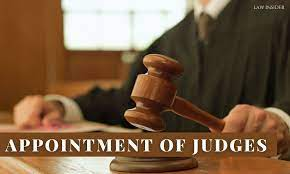Free Courses Sale ends Soon, Get It Now


Free Courses Sale ends Soon, Get It Now



Copyright infringement not intended
Context - The Union Government has notified the appointment of 8 new High Court judges.
Details
Appointment of the High Court Judges
Collegium System
Evolution of Collegium System
Qualifications for Supreme Court Judges
https://epaper.thehindu.com/Home/ShareArticle?OrgId=GTU9SJM4V.1&imageview=0
© 2024 iasgyan. All right reserved